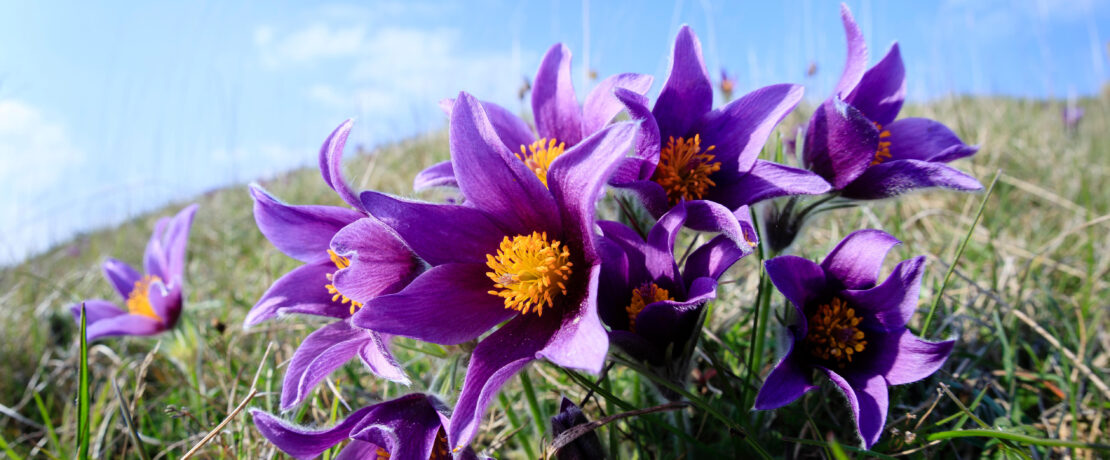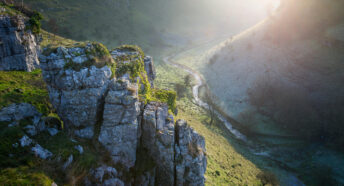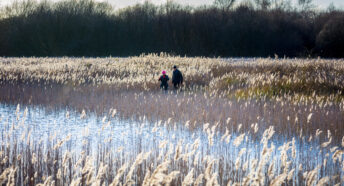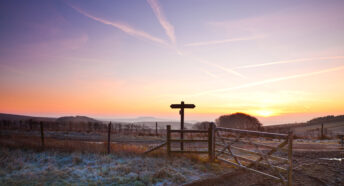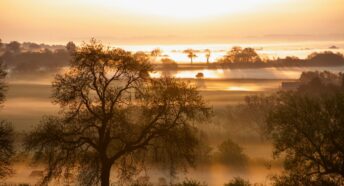Mike Dilger – ‘plants opened up a world of wonder’
On my ninth birthday, I got a book by Bruce Campbell called Birds in Colour.
I’d already gone through various hobbies, like trainspotting and stamp collecting, but that was it for me. I thought: I want to see every single species. And I’m as keen on wildlife now as I was at nine years of age. There were 256 British birds in it, and I’ve seen 255 of them. The only one I’ve not seen yet is this little game bird, the quail.
A world of wonder
During the pandemic, I became obsessed with plants. Normally when I’m outdoors, I look at birds, but I already knew all the bird species close to home. So, during our daily exercise, I started to look at the plants at my feet. I knew some of them fairly well – daffodils, dandelions, daisies – but I started to wonder about the rest. So for the first time, I took a plant book out with me, and stopped to try and identify them. It opened up a world of wonder.
Now is a fantastic time of year to spot wildflowers. And it would be rude not to mention a nice rare one: pasqueflowers. You can find them in the Cotswolds and the Chilterns, among other places, and they’re an astonishingly beautiful plant. Mid-spring is also a great time for woodland flora, like wood anemone, wood sorrel and one of my favourites, moschatel, also known as townhall clock. All of those plants are ancient woodland indicators. If you find a big patch of wood anemone in bloom, it may well have been there for hundreds of years.
So much to fight for
Looking for plants, I’ve learned that we really do live in a green and pleasant land. Reports show that we’re one of the most nature-depleted countries in Europe, and we can get quite doom-and-gloom about the state of wildlife in Britain. But while we lament what we have lost, there is still much to fight for.
There are pockets where we have the opportunity to see amazing stuff. Teesdale, for example, has a collection of plants that you won’t find growing together anywhere else. Up there, on top of Cronkley Fell, you’ll find spring gentian, the bluest flower in the world, and hear ring ouzels and golden plovers calling. It’s only a short distance from the Pennine Way, yet on the day I visited, I had the place to myself, which was nice, but then again, if not enough people enjoy these plants, their habitats won’t get protected.
The definition of a weed is a plant growing where someone doesn’t want it to be. Some people – I call them the neat and tidy brigade – want the council to come out and spray all the weeds with herbicides. But weeds are beautiful, they attract bees and butterflies, and they bring nature to our urban areas.
I’m lucky to live in Somerset near two of my favourite British landscapes. The Somerset Levels are a conservation success story; there are lots of contiguous reserves being well managed by different agencies, and it’s a wonderful place for bitterns, marsh harriers, cattle egrets and other wildlife. And I absolutely love the Mendip Hills: this huge Carboniferous limestone lump, with lots of fabulous plant life. I must have walked every footpath in the Mendips.
Hedgerow corridors
Hedgerows are one of the most astonishing and underrated habitats in Britain. They are linear woodlands, which sometimes pre-date the woods around them. They are corridors, enabling wildlife to move to and fro. They link everything together. I filmed a piece on hedgerows for The One Show with Prince Charles (as he then was), and I’ve never had such a big response. There’s so much love for hedgerows. But in modern Britain, they’ve often been scrubbed up or flailed to death. In my next life, I want to come back as a hedgelayer. Laying hedges is the most wonderful way of improving farmland habitat.
Wildlife and countryside ‘top of priority list’
In Britain, we have some of the most nature-obsessed people in the world. There are so many people giving their time to volunteer with charities, carry out nature surveys, do practical conservation work, or share their expertise. They don’t do it for thanks; they do it because they feel it’s right, and I doff my hat to them.
If I was in charge of the countryside, I’d make it compulsory for kids to get outside. When I was young, it was easy: the outside was a world of infinite possibility, and the inside was dull and boring. But somehow it’s been flipped, and wildlife has to compete for attention with computer games and social media. So I think it’s exciting that there’s going to be a GCSE in natural history. Our son Zachary is much more environmentally minded and conscious than I ever was. I want kids to appreciate the outdoors, and I want to build a groundswell of support for wildlife; that’s how we influence the decision-makers.
Our generation took its eye off the ball. On our watch, the countryside has been trashed by agricultural intensification. The climate is changing. Wildlife and the countryside cannot be taken for granted any longer; we have to put them at the top of our priority list. Mother Nature is quite resilient, but there’s only so long we can continue taking the p*ss.
About the author
Ecologist and TV nature presenter Mike Dilger is the resident wildlife reporter on the BBC’s The One Show. His latest book, One Thousand Shades of Green: A Year in Search of Britain’s Wild Plants is out now.
A version of this article was originally published in CPRE’s award-winning magazine, Countryside Voices. You’ll receive this as well as access to other benefits including discounts on attraction visits and countryside kit from major high street stores when you join as a CPRE member. Join us now.
